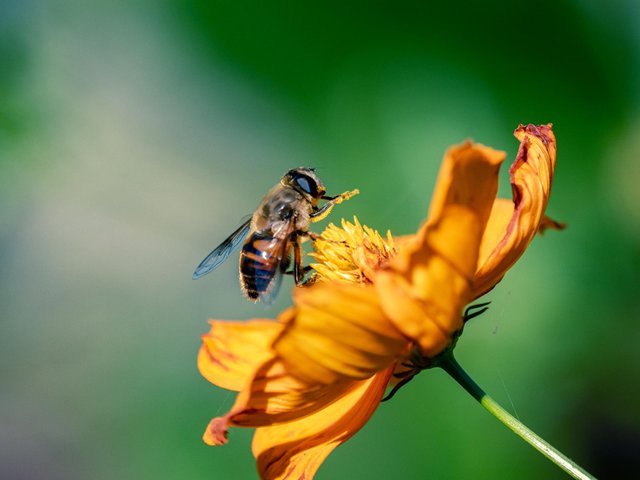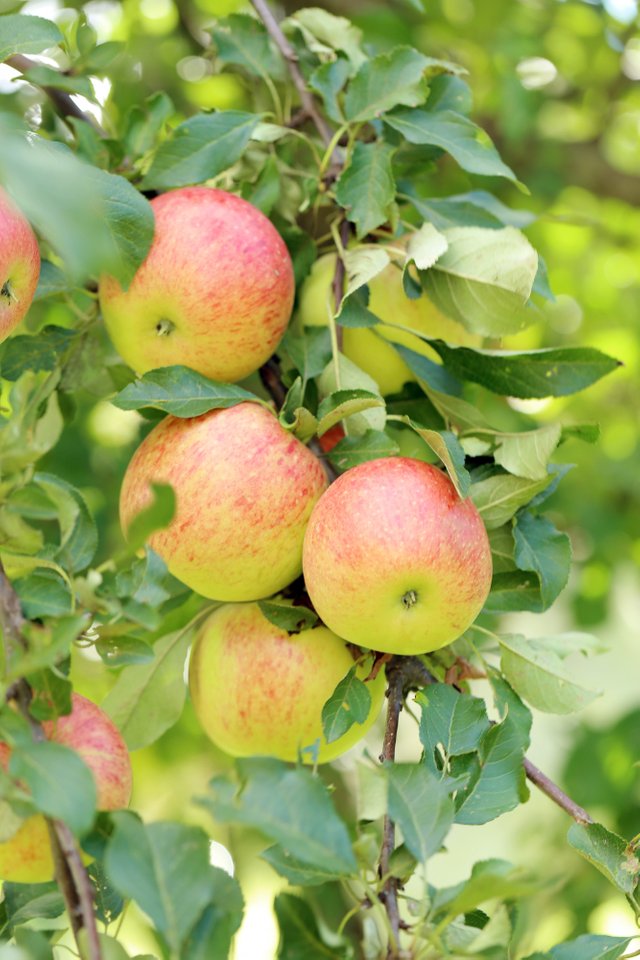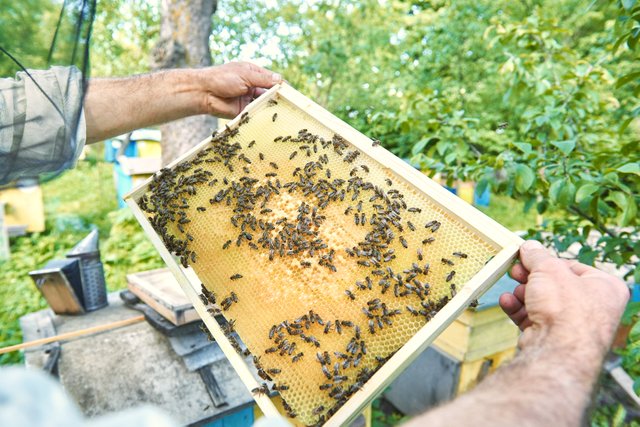Hello Guyz, How are you all, This is me Muhammad Ahmad from Pakistan. Today I am participating in the contest in the Steem-Agro community! This contest is about bees like the role of bees in agriculture.
.png)
Bees don't have any specific functions because they have a lot of functions.Mostly through their role as pollinators, bees are essential to agriculture. They are some of the most efficient pollinators, helping a wide variety of blooming plants—including a sizable portion of crops—proliferate. This increases yields and enhances the quality of the fruit and seeds. Bees sustain agricultural resilience and ecosystem health by pollinating a diverse range of plants, thereby contributing to biodiversity conservation in ecosystems. Farmers' lives and the agricultural economy as a whole are greatly impacted by the crops that bees pollinate; each year, billions of dollars are credited to their contributions. Furthermore, by sustaining native plant communities, lowering the requirement for chemical inputs, and enhancing soil health through increased plant diversity, bees help sustainable agriculture. In addition to being essential to food security, bees ensure that important crops are pollinated, which helps feed the world's expanding population. Beyond agriculture, bees encourage plant reproduction and preserve wildlife habitats, which improves the general health of ecosystems.
Because of the way bees reproduce, bees are very important to the successful pollination of several crops. Bees play an important role in the pollen transfer between flowers which is necessary for fruit development and yield, especially in the case of apples, blueberries, and cherries. Nuts—especially almonds—nearly exclusively depend on bee pollination; good blooming and fruit sets require a high bee population. Cucumbers, pumpkins, and squash are among the plants that greatly benefit from bee activity, which enhances the size and quality of the fruit. Bee pollination enhances the size and quantity of berries, including strawberries, which also results in increased production. Bees are also necessary for efficient pollination of crops like canola, which increases seed output and oil quality. These crops depend on bees because of their intricate blossoms, which gain from cross-pollination—a process made possible by bees collecting nectar. This association highlights the vital function bees play in agriculture by increasing yields while also improving produce quality. These vital crops' productivity and viability may be seriously jeopardized in the absence of adequate bee numbers.
Bees function as pollinators for different crops such as fruits vegetables and nuts bees contribute to world food-security. They help pollinate which boosts crop yields and enhances food quality—both necessary for feeding a growing population. Bees are important to a lot of staple foods, so there is always a varied and wholesome source of food. Bees also assist sustain healthy ecosystems, which are essential for sustainable agriculture, by pollinating wild plants, contributing to agricultural biodiversity. Their decline underscores their critical significance in global food security by potentially seriously endangering food diversity and availability.
The economic value of bees to agriculture is very important and is estimated to be in the billions of dollars annually in the world. The pollination of different crops such as fruits vegetables and nuts is made possible by bees and greatly increases agricultural yields and quality. Examples of crops that directly affect farmers' incomes are those that heavily depend on bee pollination, such as apples, blueberries, and almonds. Furthermore, bee-pollinated crops' higher productivity strengthens food supply chains generates employment in agriculture and allied businesses, and boosts rural economies. Bees are vital to the agricultural industry economically and their decline could result in lower agricultural productivity more expenses for farmers and higher food prices.
I would like to invite @mesola @suboohi @ruthjoe to participate.



Welcome to steem-agro
MODs Comment/Recommendation:
Thank you so much for sharing your thoughts on bees. We are happy to see your commitment with steem-agro. Keep engaging with others. Best of luck.
Remember to always share your post on Twitter using these 3 main tags #steem #steemit $steem
Downvoting a post can decrease pending rewards and make it less visible. Common reasons:
Submit